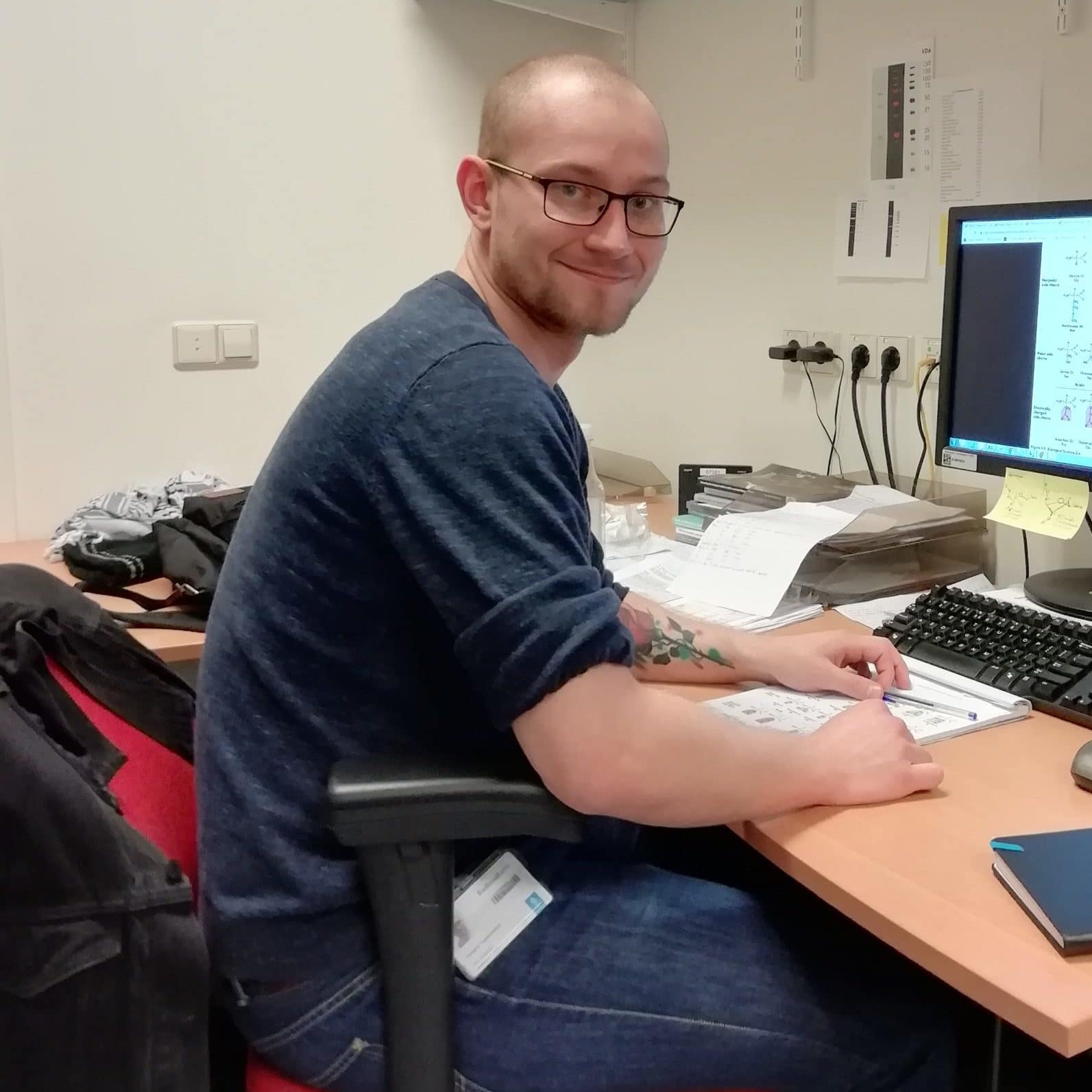“I first came across gene therapy for inherited retinal diseases when I was at Trinity College Dublin studying for my Master’s degree in Molecular Medicine. Our class was given lectures on a special type of gene therapy for retinitis pigmentosa, which I found truly inspiring. I also came across a publication (Maguire, High et al., 2009) about gene therapy for Leber congenital amaurosis (LCA), which contained a short video showing the enormous improvement in a boy’s ability to navigate a simple maze before and after treatment. In the world of science we more often than not communicate through data and numbers. To have the opportunity to actually witness the results of scientific endeavour in action gave me the final push to pursue my career in this field.
“When I found out about the PhD opportunity in Prof. Collin’s group, I wanted to familiarise myself with the work they’d already done and came across impressive publications on Stargardt disease and LCA. My positive feelings about the project were cemented when I had the opportunity to meet my supervisors in person and talk to other PhD students and lab technicians in the team. Making the decision to leave Ireland, which had been my home for 10 years, was a huge challenge but I received a very warm welcome to the Netherlands from the other researchers. I’m now really happy that I decided to make the move and commit to Stargardt disease.
“My research involves studying the ABCA4 gene, which is associated with most cases of Stargardt disease. Together with Prof. Collin and our colleague Dr Garanto, I am investigating the possibilities for tailored genetic therapies for various different disease-causing mutations – over 900 variants in ABCA4 have been reported so far. It is a very detail-orientated task, starting with the identification of a mutation and then proving that the mutation of interest can in fact give rise to Stargardt disease.
“Once we have identified a mutation of interest, we study the DNA sequence around it, which allows us to develop special molecules called antisense oligonucleotides (AON) that are capable of cancelling out the effect of the fault. As a result, the genetic instructions for building the ABCA4 protein can be ‘read’ correctly by the retinal cells. Although this sounds quite straightforward, it’s actually a really complex process; sometimes the smallest alterations in an AON can bring colossal changes to its functionality. However, we believe that the AON expertise we are developing could also be employed in the treatment of retinal diseases other than Stargardt’s, and we are unravelling the secrets of cellular gene-editing mechanisms that also influence other conditions.
“This work is only possible because of the help we receive from people living with Stargardt disease. When they decide to donate cells for research, they make the first step towards better understanding of the condition. Without their contribution we wouldn’t have the means to test our therapies and come up with modifications and improvements. I like to think that behind every cell line I work with, there is a person. Bringing this human aspect into the laboratory environment really helps me maintain my motivation, and working with different cell lines has become one my favourite aspects of the project.
“Nonetheless, I definitely need to start my day with a cup of coffee! I find it wise to plan my day or even week ahead – organising experiments and workload carefully can save you from walking around the lab hungry! I have experienced some very long days but I don’t mind because the work is so involving, I always really want to see how experiments work out.
“I particularly enjoy Monday morning meetings with Prof. Collin and the rest of the team working on ABCA4. We present what has been accomplished the previous week and what we have planned for the next few days. The meetings really help promote creative thinking and problem solving, which is so important for early research where you need to come up with the next step. However, it can be frustrating when an experiment doesn’t work despite the fact that each step was thoroughly thought through and discussed.
“I would really like to stay in academia after my PhD and possibly become a lecturer to inspire the next generation of students. The world of inherited retinal disease is so complex; I think we will never run out of causes and hypotheses to investigate. I am still awaiting my big success, but I hope that with every small achievement I will become more committed to the subject.”
“Stargardt disease often begins at a relatively young age, particularly in more severe cases, and I really hope that my work will make a difference in these situations. I really want to be a part of the effort to give young people the chance to see and experience the world with their own eyes.”

